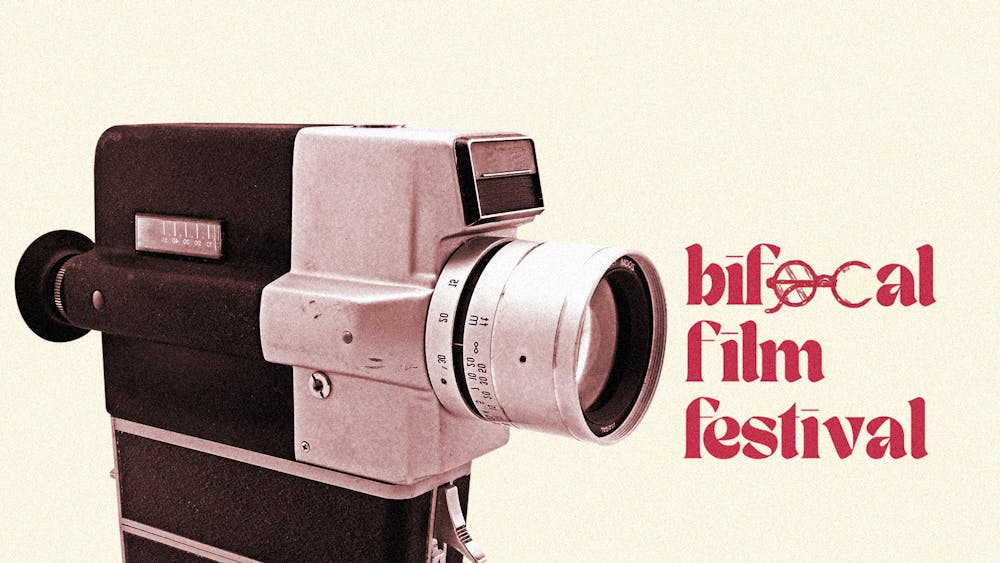The story of Penn's upcoming student–run and produced Bifocal Film Festival doesn’t start where you would expect it to—in Philadelphia. Rather, it begins in Kenya.
Last summer, future Bifocal director and founder Maya Pratt (C ’23) was on a study abroad program. She was there to work with FilmAid Kenya, an organization teaching film and media skills to students of the Kakuma Refugee Camp in Northwest Kenya. The work and storytelling produced from such harsh circumstances struck Pratt deeply.
“They were able to translate everything they’d been through into film; they made art about their lives and experiences as refugees and they were also telling stories that had universal meaning,” Pratt tells Street.
Pratt’s experience in Kenya opened her eyes to a wealth of global cinema—which was largely being created by young filmmakers or student filmmakers. These filmmakers were her peers, but that didn’t mean they had all been given an equal playing field. Upon arriving back home in the United States, Pratt’s imagination sparked instantly. Taking inspiration from other popular college film festivals like the Ivy Film Festival, Pratt envisioned a project that highlighted unique student stories from around the globe and hinged on both the scaled–down locality of Penn and the massive international community Penn brings together.
“How could we, with all of the power that comes with being Penn students, create something to highlight diverse stories across the globe,” Pratt says.
The story behind the festival’s name revolves around an intriguing metaphor: the bifocal. Not every Penn student may be completely up to date on their Ben Franklin trivia, but the team behind the Bifocal Festival was. They were inspired by Franklin’s pioneering invention—the bifocal glasses—which allows one to see both near and far. The metaphor here is intuitive and nuanced; multiple lenses which focus in and out on multiple films, magnifying and focusing on the stories that we might otherwise only see from an enormous distance.
This is the heart of the Bifocal Festival: near and far. Local and global. National and international. Penn and the world that it inhabits.
With a tentative location at the Perry World House, a tentative date in early April, and their fundraising growing every day, the dream of Bifocal is slowly shaping into reality. The team is working at lightning speed: They opened for submissions on Nov. 14, and as of the next day they had over 100 student films from 38 countries. They will begin curating their final selections in February. The festival will be open to anybody who can verify their affiliation with a film program in an academic institution or alternate media curriculum.
The Bifocal Festival includes a dazzling range of categories, from animation to experimental to music video. Eventually, when submissions close Jan. 27, an internal committee will pick the final selections for the festival. The festival will run all day, leaving the prizes for the evening. While you might not pick up anything like an Oscar at the Bifocal Festival, Pratt is firm in her push for monetary and connection–based prizes. But more than that, she knows the simple value that comes with validation.
Pratt said that without the resources at Penn to help support her ventures and dreams, she isn’t sure she’d be a filmmaker today. She received funding from the Seltzer Family Foundation at Penn for her early film work, allowing her to pursue her first–ever documentary project, "Essentially Criminal," about the United States–Mexico border. Now, Pratt is committed to producing a festival for other students to exhibit and showcase their creative work, just as she had been given the opportunity at Penn. Pratt’s no stranger to creation herself, whether she’s working on one film or the whole festival. Directing "Essentially Criminal" taught Pratt how to build something from the ground up, which was useful when organizing the Bifocal Film Festival.
“[It’s] all about the process of having an idea, and then executing it. Beginning with an idea, doing the research, getting the funding—these are all transferral skills from filmmaking,” Pratt says.
Organizations and student groups at Penn have rallied around the Bifocal Film Festival, and Pratt’s connections with FilmAid Kenya were enthusiastic. Pratt has spearheaded this project, but it has taken a village. She works with a large team of committee members, all students, who work on fundraising, planning, and securing industry interest and support. That’s a key element of Bifocal’s mission, which hopes to connect its student filmmakers to industry professionals and professional opportunities.
When talking about the future of Bifocal, Pratt laughs, “This is just the pilot episode.” What Bifocal and Pratt hope is that other students will take up the festival and help it return for a second year. One day, it might be two days. It might be a weekend, maybe a week. Ultimately, the hope is that Bifocal leaves a legacy of commitment to diverse films and stories at Penn. Beyond that, who knows? Their ambitions are boundless.
The work to create an entire film festival is difficult, especially without faculty leadership, but Pratt and her team are happy to put in their hours.
“Almost nothing is as rewarding as this festival,” Pratt says, with a beaming smile on her face. “What’s amazing about this process, like all films, is that it’s growing completely from the ground up.”

